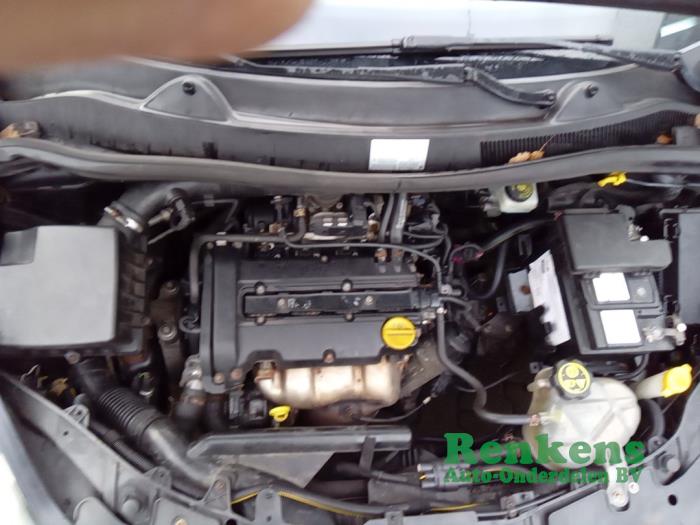Opel Corsa 1.4 Engine Price Malfunction: Check Out High Quality Car Parts Selections
Opel Corsa 1.4 Engine Price Malfunction: Check Out High Quality Car Parts Selections
Blog Article
Engine Buying Professional Tips on Choosing the Right Engine for Your Certain Demands
Choosing the best engine for your specific demands entails a complicated interplay of variables that go past mere horse power numbers. By delving right into the ins and outs of power versus effectiveness, evaluating gas scores, and budgeting for long-term prices, one can genuinely optimize their engine selection.
Power Vs. Effectiveness: Finding the Equilibrium
When choosing an engine, it is crucial to strike an equilibrium between power and performance to fulfill your particular demands efficiently. Power describes the engine's ability to produce power for propulsion, figuring out elements like velocity, hauling ability, and overall efficiency - Opel Corsa 1.4 Engine Price. On the various other hand, effectiveness associates with how well the engine makes use of fuel to produce power, influencing factors such as gas economy and environmental kindness
Achieving the appropriate balance between power and performance is important due to the fact that an engine that is too powerful might eat excessive fuel, bring about greater operating costs and unnecessary pressure on the setting. Conversely, an engine that prioritizes effectiveness over power might cause slow efficiency, especially in demanding circumstances like lugging hefty loads or driving uphill.
To make an informed choice, consider factors such as your common driving conditions, the intended use the automobile, and your individual preferences. By assessing your concerns and demands, you can pick an engine that strikes the best balance in between power and performance, guaranteeing optimal performance while minimizing ecological impact and operating expenses.
Understanding Engine Dimension and Type
To better fine-tune the option procedure of an engine that strikes the ideal balance in between power and effectiveness, it is important to delve right into the complexities of understanding engine size and type. Engine dimension refers to the overall volume of air and fuel that can be pressed through the engine cyndrical tubes.
Typical engine kinds include inline engines, V engines, and rotary engines, each with its one-of-a-kind advantages and disadvantages. Recognizing the interplay between engine dimension and type is important in picking an engine that aligns with your particular requirements and priorities, whether it be power, performance, or an equilibrium of both.

Consider Your Car's Requirements
Considering your lorry's demands is a fundamental action in the engine selection procedure to guarantee optimum efficiency and performance. It is vital to assess variables such as the intended usage of the vehicle, its weight, pulling capacity, and gas performance requirements. For instance, if you are seeking an engine for a durable vehicle that will be utilized for towing, you will certainly need a powerful engine with high torque capacities. On the various other hand, if you are choosing an engine for a compact automobile largely used for city commuting, gas performance may be a more vital variable to consider.
If you regularly drive in uneven or mountainous locations, a robust engine with good climbing power will be essential. By straightening the engine specs with your car's requirements, you can make certain that your automobile operates efficiently and meets your efficiency expectations.
Evaluating Gas Effectiveness Ratings
Analyzing fuel performance ratings is an important aspect of picking the best engine for your vehicle, making certain expense savings and ecological sustainability. Fuel performance scores, generally gauged in miles per gallon more helpful hints (MPG) for gas engines or kilowatt-hours per 100 miles (kWh/100 miles) for electrical engines, suggest how far a vehicle can take a trip on a specific quantity of fuel or power. Higher MPG or reduced kWh/100 miles values indicate a lot more efficient engines, equating to reduced fuel prices and lower carbon discharges.
In addition, contrast different engine options within the very same vehicle class to determine the most cost-effective selection. Variables such as engine dimension, weight, aerodynamics, and hybrid or electrical capacities can all affect gas performance.
Budgeting for Long-Term Prices
Strategically preparing for long-term costs is essential when selecting an engine, guaranteeing monetary sustainability over the car's life expectancy. While the preliminary purchase rate of an engine is a substantial element, it is important to think about the long-lasting costs related to maintenance, repairs, and fuel usage. Choosing for a more fuel-efficient engine may have a greater ahead of time price however can lead to significant financial savings gradually. Routine maintenance, such as oil changes, filter substitutes, and tune-ups, is vital to maintain the engine running smoothly and efficiently, reducing the threat of pricey repair services down the line.
Additionally, looking into the availability and cost of substitute parts for the selected engine is crucial in spending plan preparation. By thoroughly budgeting for these long-term expenses and factoring them into the decision-making process, individuals can pick an engine that not only meets their immediate requirements but also stays economical throughout its life-span.
Verdict
To conclude, selecting the right engine for your particular requirements needs stabilizing power and performance, recognizing engine dimension and kind, considering your lorry's needs, reviewing gas effectiveness scores, and budgeting for lasting navigate to these guys prices. By very carefully taking into consideration these variables, you can make certain that you pick an engine that satisfies your needs and offers optimal efficiency for your automobile.
To better fine-tune the choice procedure of an engine that strikes the ideal balance in between power and effectiveness, it is necessary a fantastic read to delve right into the ins and outs of understanding engine dimension and type. Engine size refers to the complete volume of air and gas that can be pushed through the engine cyndrical tubes. Common engine kinds include inline engines, V engines, and rotating engines, each with its distinct advantages and downsides. Comprehending the interaction between engine dimension and type is essential in choosing an engine that aligns with your certain demands and concerns, whether it be power, efficiency, or an equilibrium of both.

Report this page